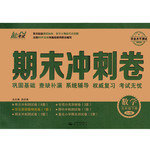题目内容
The students love the teachers ______________can make their lessons funny and easy.
A.whom B.which C.who
 能考试期末冲刺卷系列答案
能考试期末冲刺卷系列答案书面表达。
九年级1班需要一位新班长(monitor)、你(Jim)想推荐David,请根据下面的思维导图提示,给班主任胡老师写一封推荐信。
要求:
1.提示内容必须全部包括。
2词数:80~100。开头已给出,不计入总词数。
3文中不得出现真实的校名和人名。
David | 1.聪明 |
2.自信 | |
3.刻苦努力 | |
4.有组织能力 | |
5.乐于助人 |
Dear Mr. Hu,
I’m writing to you to recommend David as our new monitor. __________________________
____________________________________________________________________________________________________________________________________________________________________________________________________________________________________________________________________________________________________________________________________________________________________________________________________________________________________________________________________________
阅读下面短文, 根据所读内容, 在文章后小题的空格里填入一个最恰当的单词。注意:每个空格只填一个单词。
No matter young or old all children love to play different interesting games. In a school in Britain at playing time, you will see children playing all kinds of games. And after school if the weather is good and when homework is done, you are sure to find children playing outdoors too.
Everywhere you look in a playground, children are having fun chasing(追) each other! Games of chase are very popular in Britain, just like everywhere else in the world. There are lots of types of chase game, and lots of different names for them depending on which part of the WK you visit. “Tig”. “Tag”, or “Debby” are all names for the same game. In those games, somebody is “it” or “on”. He must chase his friends and try to catch them. If he can slap or tap them on the shoulder, he makes it. When he does, he shouts “Tig! You’re it!”
One of the best things about chase games is you don’t need any extra equipment(设施), like a bat or ball to play. Some games though do need equipment. Ball games are always popular, and wherever you look in the UK you will find children playing football. Often, if there are no goalposts to use, children will use their jumpers or coats as goalposts.
Another popular piece of kit that is found in many playgrounds is a skipping rope. Children take it in turns skipping into the swinging rope and jumping, while a rhyme(短诗) is chanted.
At weekends, when there is lots of time to play, many boys and girls enjoy skating and skateboarding. Most towns have skate parks, which are places where there are ramps(坡道) and rails(扶栏) for doing tricks. It’s fun to ride bikes too. BMX bikes are great for doing tricks and jumps, and some towns have special tracks for people to race or practice tricks at.
Whatever types of game you like to play, there are lots to choose from.
Title: Children’s Games and Sports | |
Children of all 1. enjoy playing different games. If it is fine or when finishing homework, you can 2. see children lain outdoors. | |
What to do | 3. to play |
Chasing games | Children are often seen chase each other 4. in a playground. Different chase games have different names, but “Tig”, “Tag” or “Dobby” stand for the 5. game in the UK. Somebody who is “it” or “on” must chase his friends. He tries to catch his friends by 6. or tapping them on the shoulder and then shouts “Tig! You’re it!” Children can play chase games 7. any extra equipment. |
Ball games | Ball games need equipment. If there are no real goalposts, children sometimes use their jumpers or coats 8.. |
Skipping rope | Children take turns to skip into the swinging rope and jump, chatting a rhyme at the same time. |
Skating and skateboarding | Children can try different 9. along ramps and rails in skate parks. |
10. | Children race or practices tricks along special tracks on bikes. |


